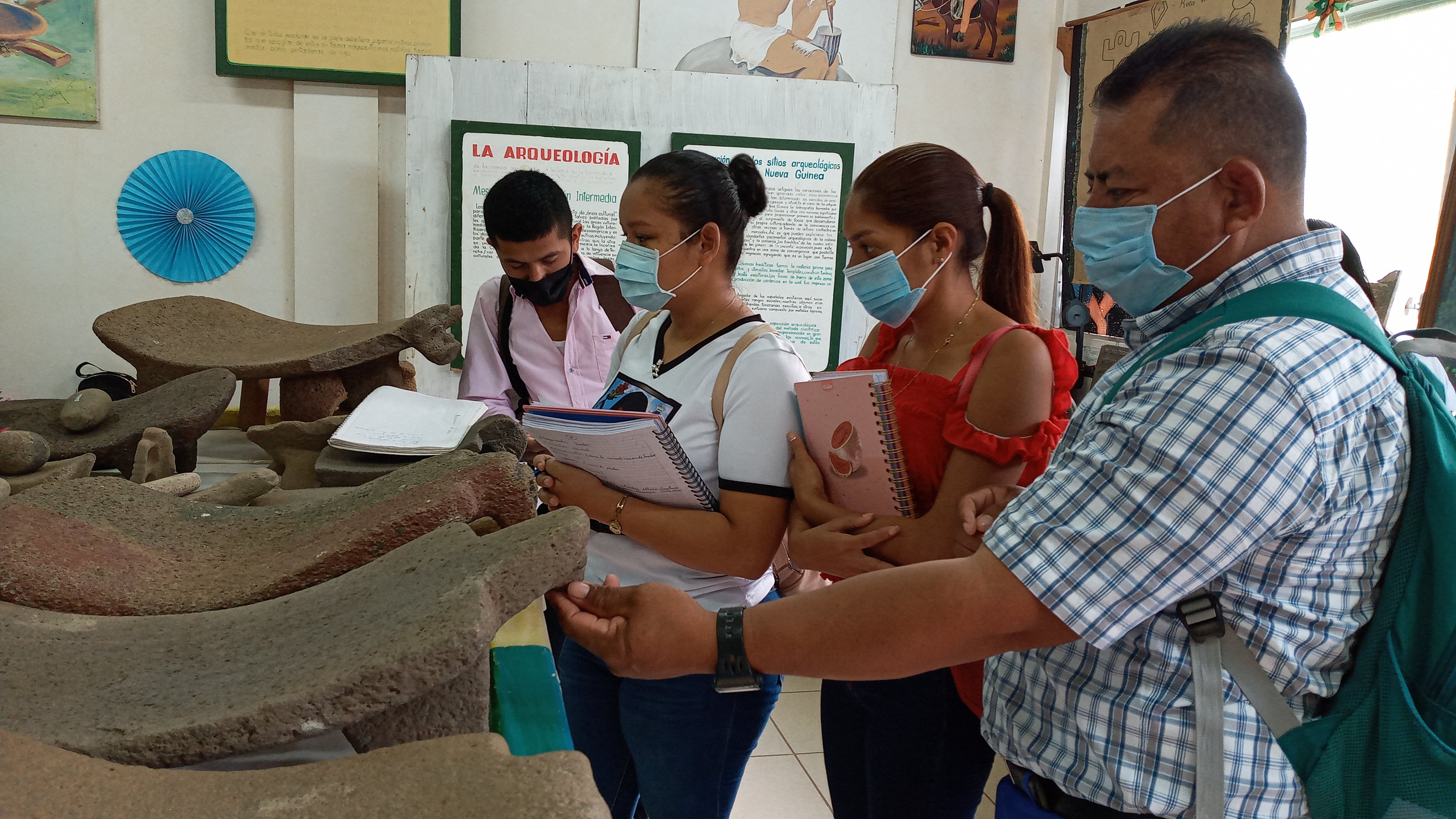
Fifth-year history degree students visit Los Ranchitos Community Museum
Student visit of the history degree
As part of the activities carried out in the subject of archaeology, the fifth year group of the history degree, at URACCAN Campus New Guinea, made an exploratory visit to the Los Ranchitos Community Museum, located on this university campus.
According to teacher Marlín Martínez, archaeologist and teacher of the class group; it is of the utmost importance to contribute from these spaces to the shelter of the cultural and archaeological richness of the country, "it is important that as students of history know about our cultural, our pre-Hispanic culture and can transmit the rescue and promotion of culture, mainly in our Nicaragua and the important thing is that in URACCAN there is a museum that promotes and promotes that cultural rescue" , the specialist said.
Martinez also noted that "In New Guinea there are places immensely rich in archaeology and how important there is a community museum that promotes, promotes, that rescue, that cultural identity," he added.
Cultural promotion and rescue space
In this sense, teacher Greysi Pauth, head of the Los Ranchitos Community Museum, says that this museum manages to be "a reference for the cultural rescue of the area, but it is also seen as that history laboratory that allows us to know about the riches of our past," she explained.
For his part, the student of the fifth year of the bachelor's degree in history, Duglas Eliezer Sevilla Urbina, commented that "to culminate his career, having knowledge of archaeology is extremely important, since it is the science that leads us to know about our past, from fossils, lithic or ceramics and that bring to the present that story that we can tell our students" Assured.
The University of the Autonomous Regions of the Nicaraguan Caribbean Coast (URACCAN), according to its mission and vision, has been promoting since its foundation the rescue of the cultural and archaeological values of the Region, through the construction of spaces and laboratories that allow to develop the capacities of its university community.
- Log in to post comments
- 46 views
